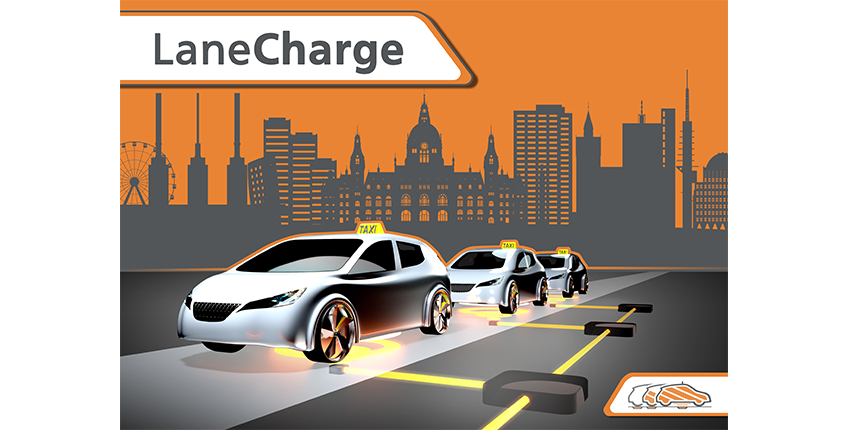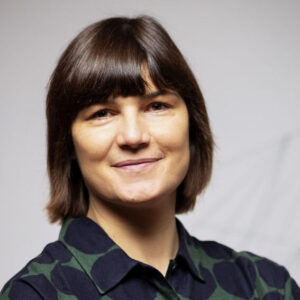The LaneCharge consortium has developed a pioneering charging system for charging electric vehicles using inductive charging. In the future, it will be possible to conveniently control charging from inside the vehicle – irrespective whether you are parking, at traffic lights or at home in the garage.
The consortium partners are today presenting their research results at the official closing event of the LaneCharge project in Hannover. The research project was first launched in 2019 and will be concluded by the end of this year. The practical tests under laboratory conditions were successful: At the Hannover University of Applied Sciences and Arts, electric vehicles were able to be charged wirelessly on up to 12 induction coils on a test track spanning a distance of 90 metres. The technology will also be available to the university for research and teaching after the project has been completed.
Among the distinctive features of the project are the integration of the induction coils into the asphalt, the control of the required charging power by the vehicle side (a patent application has been filed) and the partial accommodation of the charging electronics in underground control cabinets, so-called underfloor distributors. No additional charging points are required and the system blends into the streetscape in a visually neutral manner.
Prof Hepp from the consortium leader, Hannover University of Applied Sciences and Arts, explains: “The inductive charging system developed in the project allows continuous intermediate charging for ‘stop & go’ situations, such as at a taxi rank, which enables a smaller battery capacity or an increased vehicle range. The charging system is particularly attractive for local authorities and infrastructure operators, as charging points can be created without impacting the cityscape.”
The “LaneCharge” research project is funded with a total of 2.77 million euros as part of the Federal Ministry for Digital and Transport’s (BMDV – Bundesministerium für Digitales und Verkehr) electric mobility funding guideline. The guideline is coordinated by NOW GmbH and implemented by Project Management Jülich (PtJ).
The partners involved in the LaneCharge project include four consortium partners from science and industry: EDAG Engineering GmbH (power electronics and vehicle integration), Hannover University of Applied Sciences and Arts (project management, power control and communication system), SUMIDA Components & Modules GmbH (induction coils), Technical University of Braunschweig (road integration). Enercity AG, Götting KG, Hallo Taxi 3811 GmbH and the state capital of Hannover are also involved in the project as associated partners.


